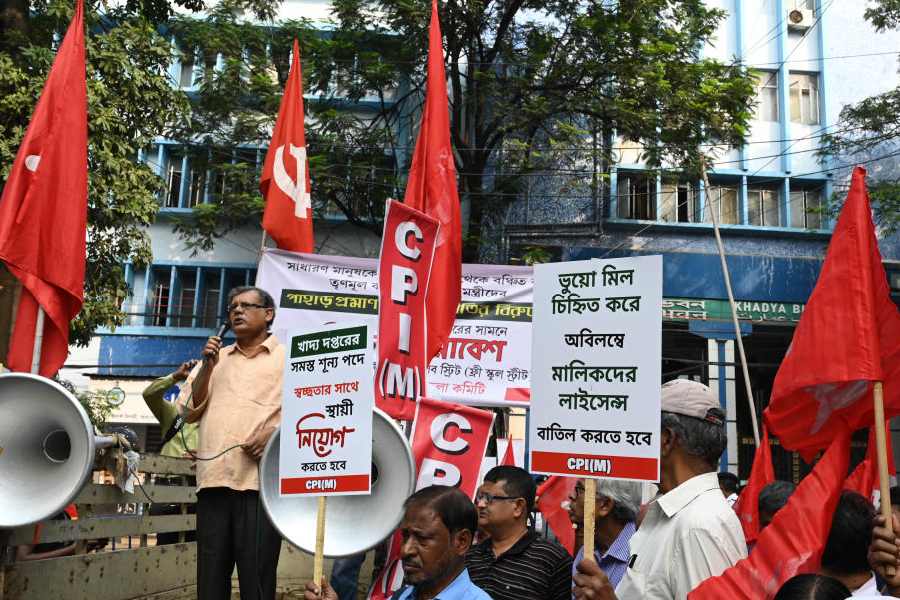The food and supplies department had lodged FIRs against ration dealers over alleged irregularities in the distribution of foodgrains during the initial days of the nationwide lockdown in March 2020, but suddenly stopped pursuing the cases and the then secretary of the department was put on compulsory waiting, sources said.
The revelation comes in the backdrop of the arrest of Bengal minister Jyoti Priya Mallick by the Enforcement Directorate (ED) in connection with the alleged anomalies in the public distribution system (PDS) during the Covid-19 pandemic.
“The department was receiving complaints over irregularities in the distribution of food grains from rations shops as soon as the nationwide lockdown started in the last week of March 2020. The department had lodged at least eight FIRs against errant ration dealers within the first 10 days of the lockdown. But the department did not follow up the FIRs and the irregularities continued,” said a source in the food and supplies department.
The Centre had supplied 5kg of free foodgrains every month for nearly six
crore beneficiaries in Bengal during the lockdown. The Pradhan Mantri Garib Kalyan Anna Yojana, under which the foodgrains were delivered, was later extended till mid-2021.
Senior government officials pointed out that during the initial stages of the lockdown, the police were busy with crowd management to ensure that the novel coronavirus did not spread rapidly in the state and it was the department’s duty to follow up its FIRs.
“The follow-up action of the department got diluted after the then secretary, Manoj Agarwal, was sent to compulsory waiting by mid-April 2020,” said a source.
The sources also said as the department had not taken any action based on the complaints, common people started agitations in many areas, particularly in districts like North 24-Parganas, South 24-Parganas, Birbhum, Bankura, Nadia and Murshidabad. The situation turned so volatile that the chief minister Mamata Banerjee had to intervene.
“The chief minister ordered a probe that led to the arrest of 13 dealers. The department also showcaused 463 others. In Calcutta, 21 dealers were showcased. In South 24-Parganas, 58 showcause notices were issued to ration dealers. In North 24-Parganas, 64 dealers were showcaused,” said a senior official.
The actions after the interventions of Mamata were not enough to stop the corruption, said an official. “If the problem was nipped in the bud, the larger problem could have been averted,” added the official.
Sources in the government feel the influence of Bakibur Rahman, a rice mill owner who was arrested by the ED in connection with the alleged ration scam, had prevented the department from taking action against the irregularities from the beginning.
“Bakibur was allegedly leading the operation of selling foodgrains from the ration shops to open markets and even smuggling the same to neighbouring countries, including Bangladesh, from 2018. But the practice reached its peak during the lockdown. As he was close to the minister, no action could be taken. If the action was taken based on the complaints lodged by the department in the initial days of the lockdown, the situation could have been different,” said a source.
The sources also said senior government officials could have brought the situation to the chief minister’s notice in the initial stages of the lockdown.
“When the chief minister intervened and asked the department to take action, it
was too late and the initial corruption had hit the supply chain hard. It took months to repair the supply chain and ensure proper entitlement of the beneficiaries,” said a source.










